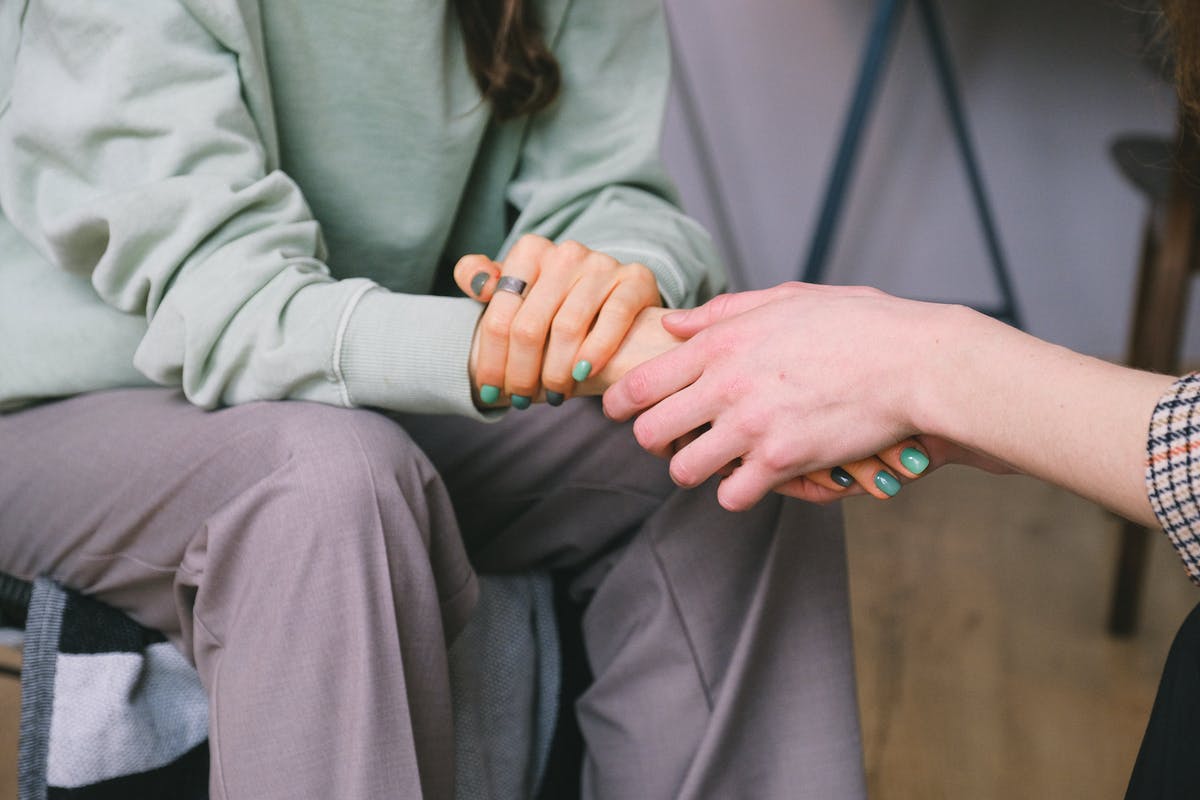Contents
Jump To:
4. Acknowledging the Diversity of the Human Experience
This question has been hotly debated within and outside of queer circles for a very long time. It’s true that many members of the LGBTQIA+ community have experienced trauma in some way, but what does that do to one’s identity? Does it kickstart the internal coming-out process? Or does it open the door for more consideration regarding who we really are inside?
1. Myth-busting
Let’s start out by addressing some a common myth about queer identity and trauma. A sentence that gets thrown around by non-LGBTQIA-identifying folks a lot is, “you’re only _______ because of what happened to you.” This is especially prevalent in the asexual community, particularly with survivors of sexual assault. Now, at the outset this might seem like more of a crime of ignorance than anything else, but digging a little deeper actually reveals some of the harmful stereotyping around LGBTQIA+ identity that has been deeply ingrained into our culture. Assuming that non-cishet identification stems solely from trauma furthers the harmful stereotype that being straight and cisgender is the default, and that being queer in any way is somehow “deviant” or “abnormal.” Additionally, trauma isn’t exclusive to the LGBTQIA+ community- many cisgender heterosexual (often abbreviated to ‘cishet’) individuals experience it while still identifying as cishet afterwards.
2. Lived Experience
So, with all that said, I would be remiss in not acknowledging the fact that a lot of identity discovery happens after a major trauma. Additionally, a lot of the queer community can attest to the trauma they’ve experienced throughout their lifetimes. So, to better explain this intersection, I’m going to use psychology, social patterns, and even the pandemic as lenses.
When a trauma is experienced, a lot of things happen. For one, the shape of the brain changes. With this change comes a reduction in “distress tolerance,” or the amount of stress, negativity, etc. an individual can put up with before experiencing an emotional overload. Something else that happens is a little existential- a traumatized individual, in recognizing their trauma, often experiences a great questioning of ideals, the fairness of the world, the goodness of people, etc.
So, with all that goes on in the mind after a trauma, I want to zero in on a few points. One, when individuals are separated from the tightly upheld gender norms commonly found in modern society, they experience a freedom of expression that may eventually lead to a change in identity. Two, the questioning of the way the world works can lead to some other questions, namely what identities do and do not feel right. And three, that reduction in “distress tolerance” may actually aid the individual in realizing what doesn’t feel right to them. Think of it this way- so many gender norms are so ingrained into our lives that we barely even think about them, much less how we feel about them. When our distress tolerance is lowered, suddenly we’re confronted with all of these things that no longer feel “normal” or good to us. It follows that some serious questioning might happen during this time.
Scientifically, no, trauma is not the cause of gender and sexuality questioning. However, it is undeniable that there is a relationship between the two. It can even be said that trauma, however devastating, may open the door to a joyful realization of one’s true gender and sexual identity. This isn’t to say that trauma has to be looked upon positively, of course. It also isn’t to say that you aren’t allowed to feel like your trauma caused your transition. At the end of the day, your experience is yours alone, and whatever answer you settle on is no one else’s right to debate.
3. Global Trauma and COVID-19
I want to quickly highlight the pattern of individuals coming out as queer during the pandemic. Well, remember what I said about questioning social norms? During the pandemic, we had a LOT of time to introspect. During the lockdown, with activities such as social gatherings restricted, we became isolated from the oppressive gender and sexual norms society enforces. We worked from home in clothes we felt comfortable in and engaged in hobbies that we genuinely enjoyed- and from that blossomed a realization for some. Without the heterosexism and cissexism present in workplaces and classrooms, many were given the chance to breathe and realize quite a few things about themselves. So, did the trauma of COVID-19 cause a bunch of people to come out? Not exactly. More like it was a happy byproduct of an incredibly terrible situation.
4. Acknowledging the Diversity of the Human Experience
I want to end this by saying that I write from one perspective. In celebrating pride and resilience, we must account for the incredible diversity of experiences and perspectives present within the LGBTQIA+ community. It is just as much the differences in our stories as the similarities that make us strong, and if you can take one thing from this blog post, let it be that your experiences belong in this community just as much as anyone else’s.
About Daphne:
Daphne Thomas (they/them/theirs) is a recent graduate of the University of Denver’s Master’s program in International Disaster Psychology and the Content Coordinator here at iAmClinic. They have been trained in a variety of approaches to therapy, and they favor a combination of feminist and narrative techniques in practice. They have extensive experience in trauma-informed and queer-affirmative care, and devote themself to advocacy as part of their continuing goal of providing better therapy to clients.


